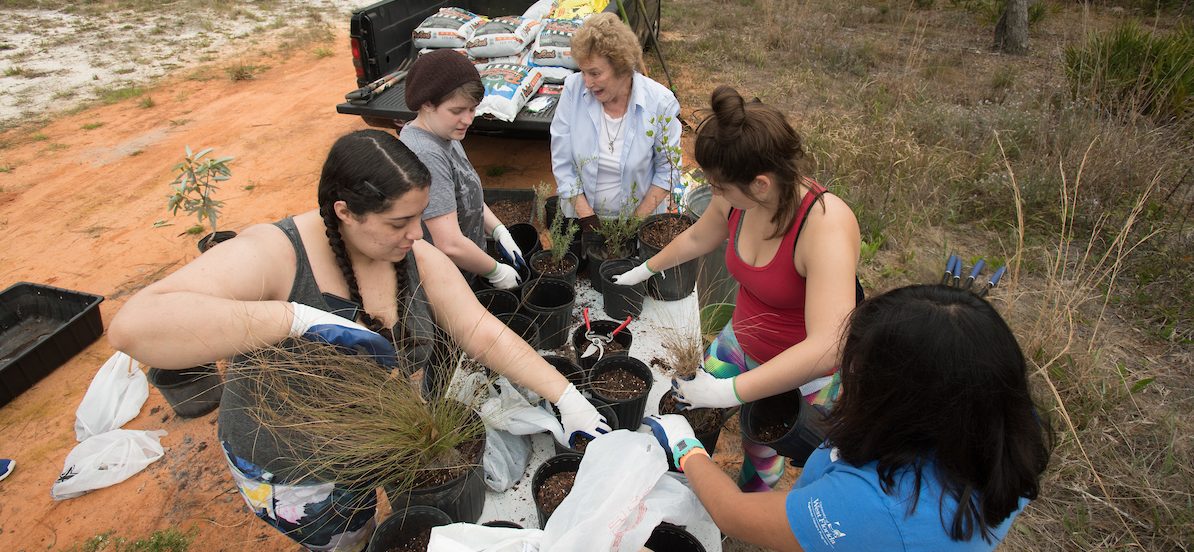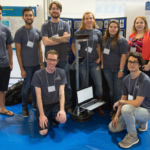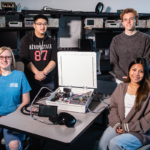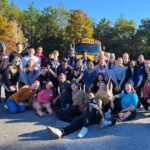Students, Volunteers Help Rescue Plants from Future Subdivision Site
Gulf Breeze – University of West Florida students and community volunteers on Saturday saved native plants from a site in Gulf Breeze that is slated for development.

Those plants, which ranged from beach rosemary to small blueberry trees, were moved from the now barren property behind the Gulf Breeze Zoo to the University’s greenhouse. They will be stored there until they are ready to be replanted and preserved at UWF’s Community Garden.
The UWF students who participated in the plant rescue effort were members of the Kugelman Honors Program, which allows students to complete their Honors requirements over the course of their time as an undergraduate at UWF. To graduate as a Kugelman Honors Scholar, each student in the program completes Honors coursework and an undergraduate thesis, performs a minimum of 100 hours of community service, and maintains a 3.25 undergraduate GPA.
Saturday’s plant rescue effort will count toward each student’s community service requirements.
“This is pretty neat,” said Nicholas Wagner, a freshman who is majoring in marine biology, said as he dug up a small tree on the property that will later be replanted.
The land behind the Gulf Breeze Zoo will soon be cleared for a subdivision. Emily Peterson, a board member for the Community Garden, oversaw the rescue effort Saturday and helped supervise the students and other volunteers who dug up and potted the plants.
John A. Frew, the owner of the property, said Peterson is a friend and he was happy to let her save as many of the native plants on the site as possible before construction started.
“I’ve walked the property with her a few times,” he said. “I know her love of plants.”
The plants will be left in pots for a few weeks to develop their root systems before being replanted in the UWF Community Garden, said Dr. Greg Tomso, associate director of the Kugelman Honors Program and one of the founders of the Community Garden.
“The most successful community gardens are catalysts for change, and for bringing people together around a common set of values,” Tomso said. “The students who volunteered to relocate these native plants are learning that we can preserve valuable resources while still accepting growth and change in our communities. While I always love to see students working in our garden, I love it even more when they take the skills they’ve learned here and apply them in off-campus settings – that is, in ‘real life.’”



